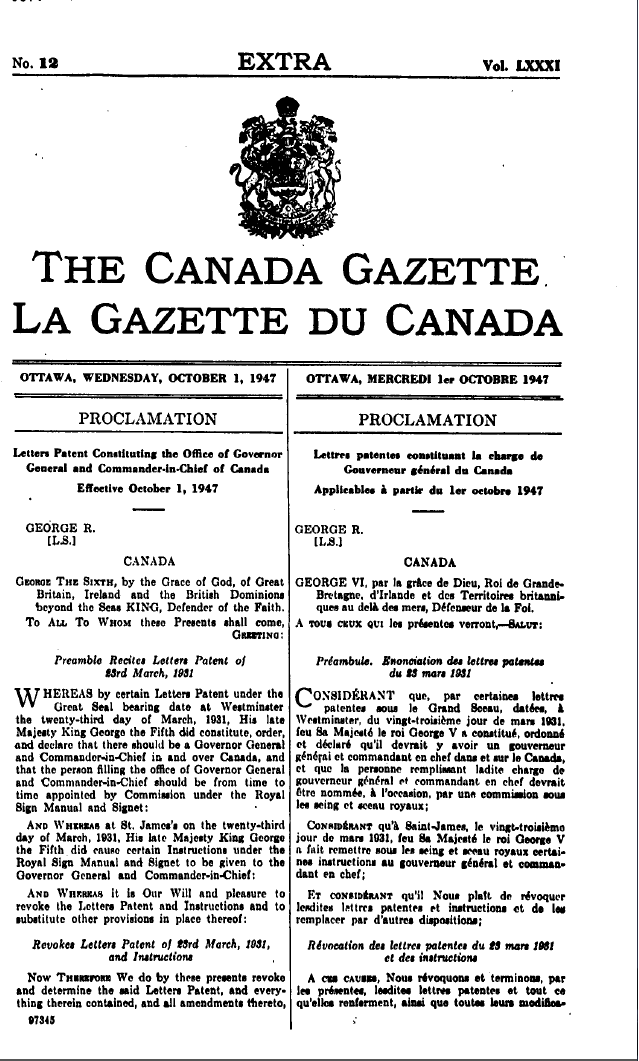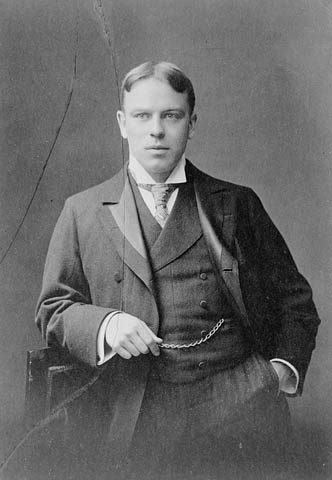|
Nickle Resolution
The Canadian titles debate originated with the presentation to the House of Commons of Canada of the Nickle Resolution in 1917. This resolution marked the earliest attempt to establish a federal government policy requesting the sovereign, in the right of the United Kingdom, not to grant knighthoods, baronetcies, and peerages to Canadians and set the precedent for later policies restricting Canadians from accepting titles from foreign countries. Dissatisfaction with the British honours system led to the gradual creation of a separate system for Canada. The Nickle Resolution The Nickle Resolution was a motion brought forward in 1917 by Conservative MP William Folger Nickle in the House of Commons of Canada. There had been controversy before the end of World War I over the honouring of Canadians—especially the appointment of Sam Hughes as a Knight Commander of the Order of the Bath (a non-hereditary honour) in 1915 and the elevation of Hugh Graham as the Baron Atholstan (a hered ... [...More Info...] [...Related Items...] OR: [Wikipedia] [Google] [Baidu] |
House Of Commons Of Canada
The House of Commons of Canada () is the lower house of the Parliament of Canada. Together with the Monarchy of Canada#Parliament (King-in-Parliament), Crown and the Senate of Canada, they comprise the Bicameralism, bicameral legislature of Canada. The House of Commons is a democratically elected body whose members are known as Member of Parliament (Canada), members of Parliament (MPs). The number of MPs is adjusted periodically in alignment with each decennial Census in Canada, census. Since the 2025 Canadian federal election, 2025 federal election, the number of seats in the House of Commons has been 343. Members are elected plurality voting, by simple plurality ("first-past-the-post" system) in each of the country's Electoral district (Canada), electoral districts, which are colloquially known as ''ridings''. MPs may hold office until Parliament is dissolved and serve for constitutionally limited terms of up to five years after an election. Historically, however, terms have ... [...More Info...] [...Related Items...] OR: [Wikipedia] [Google] [Baidu] |
Hereditary Peer
The hereditary peers form part of the peerage in the United Kingdom. As of April 2025, there are 800 hereditary peers: 30 dukes (including six royal dukes), 34 marquesses, 189 earls, 108 viscounts, and 439 barons (not counting subsidiary titles). As a result of the Peerage Act 1963, all peers except those in the peerage of Ireland were entitled to sit in the House of Lords. Since the House of Lords Act 1999 came into force only 92 hereditary peers, elected from all hereditary peers, are permitted to do so, unless they are also life peers. Peers are called to the House of Lords with a writ of summons. Not all hereditary titles are titles of the peerage. For instance, baronets and baronetesses may pass on their titles, but they are not peers. Conversely, the holder of a non-hereditary title may belong to the peerage, as with life peers. Peerages may be created by means of letters patent, but the granting of new hereditary peerages has largely dwindled; only seven hered ... [...More Info...] [...Related Items...] OR: [Wikipedia] [Google] [Baidu] |
Dominion
A dominion was any of several largely self-governance, self-governing countries of the British Empire, once known collectively as the ''British Commonwealth of Nations''. Progressing from colonies, their degrees of self-governing colony, colonial self-governance increased (and, in some cases, decreased) unevenly over the late 19th century through the 1930s. Vestiges of empire lasted in some dominions well into the late 20th century. With the evolution of the British Empire following the 1945 conclusion of the Second World War into the modern Commonwealth of Nations (after which the former Dominions were often referred to as the ''Old Commonwealth''), finalised in 1949, the dominions became independent states, either as republics in the Commonwealth of Nations, Commonwealth republics or Commonwealth realms. In 1925, the government of the United Kingdom created the Secretary of State for Dominion Affairs, Dominions Office from the Colonial Office, although for the next five yea ... [...More Info...] [...Related Items...] OR: [Wikipedia] [Google] [Baidu] |
Governor General Of Canada
The governor general of Canada () is the federal representative of the . The monarch of Canada is also sovereign and head of state of 14 other Commonwealth realms and resides in the United Kingdom. The monarch, on the Advice (constitutional law), advice of his or her Canadian prime minister, appoints a governor general to administer the government of Canada in the monarch's name. The commission is for an indefinite period—known as serving ''at His Majesty's pleasure''—usually five years. Since 1959, it has also been traditional to alternate between French language in Canada, francophone and English language in Canada, anglophone officeholders. The 30th and current governor general is Mary Simon, who was sworn in on 26 July 2021. An Inuk leader from Nunavik, Quebec, Simon is the first Indigenous peoples in Canada, Indigenous person to hold the office. As the sovereign's representative, the governor general carries out the day-to-day constitutional and ceremonial duties of th ... [...More Info...] [...Related Items...] OR: [Wikipedia] [Google] [Baidu] |
William Lyon Mackenzie King
William Lyon Mackenzie King (December 17, 1874 – July 22, 1950) was a Canadian statesman and politician who was the tenth prime minister of Canada for three non-consecutive terms from 1921 to 1926, 1926 to 1930, and 1935 to 1948. A Liberal, he was the dominant politician in Canada from the early 1920s to the late 1940s. King is best known for his leadership of Canada throughout the Great Depression and the Second World War. He played a major role in laying the foundations of the Canadian welfare state and establishing Canada's international position as a middle power. With a total of 21 years and 154 days in office, he remains the longest-serving prime minister in Canadian history and as well as the longest-serving Liberal leader, holding the position for exactly 29 years. King studied law and political economy in the 1890s and later obtained a PhD, the first of only two Canadian prime ministers to have done so. In 1900, he became deputy minister of the Canadian government ... [...More Info...] [...Related Items...] OR: [Wikipedia] [Google] [Baidu] |
Canadian Nationalism
Canadian nationalism () has been a significant political force since the 19th century and has typically manifested itself as seeking to advance Canada's independence from the influence of the United Kingdom and United States. Since the 1960s, most proponents of Canadian nationalism have advocated a form of civic nationalism that seeks to equalize citizenship for Canada's multicultural society. In particular, proponents seek to unite English-speaking Canadians with the and other French-speaking Canadians, who historically faced cultural and economic discrimination and assimilationist pressure from the English Canadian–dominated federal government. Canadian nationalism became an important issue during the 1988 federal election that focused on the then proposed Canada–United States Free Trade Agreement, which Canadian nationalists opposed on the basis that it would in their view lead to the inevitable assimilation and domination of Canada by the United States. During the 1 ... [...More Info...] [...Related Items...] OR: [Wikipedia] [Google] [Baidu] |
Continentalist
Continentalism refers to the agreements or policies that favor the regionalization and/or cooperation between states within a continent. The term is used more often in the European and North American contexts, but the concept has been applied to other continents including Africa, Asia and South America. In North American history, continentalism became linked to manifest destiny and involved merging continental expansion with international growth. Continentalism in Europe Continentalism in North America United States Historically, the United States of America saw itself as a blossoming continental nation-state. Accordingly, the first governing body for the North American colonists was called the Continental Congress, which sought to receive delegates from across the British colonized areas of the continent, including the future Canadian provinces of Quebec and Nova Scotia. Continentalism in the United States was developed through the expeditions and experiences of frontier ... [...More Info...] [...Related Items...] OR: [Wikipedia] [Google] [Baidu] |
Order-in-council
An Order in Council is a type of legislation in many countries, especially the Commonwealth realms. In the United Kingdom, this legislation is formally made in the name of the monarch by and with the advice and consent of the Privy Council ('' King-in-Council''); however, in other countries, the terminology may vary. Orders-in-Council are distinct from Orders of Council, which are made in the name of the Council without sovereign approval. Types, usage and terminology There are two principal types of order in council: orders in council whereby the King-in-Council exercises the royal prerogative, and orders in council made in accordance with an act of Parliament. In the United Kingdom, orders are formally made by the monarch with the advice of the Privy Council ('' King-in-Council or Queen-in-Council''). In Canada, federal orders in council are made in the name of the Governor General by the King's Privy Council for Canada; provincial orders-in-council are of the Lieutenant ... [...More Info...] [...Related Items...] OR: [Wikipedia] [Google] [Baidu] |
Royal Prerogative
The royal prerogative is a body of customary authority, Privilege (law), privilege, and immunity recognised in common law (and sometimes in Civil law (legal system), civil law jurisdictions possessing a monarchy) as belonging to the monarch, sovereign, and which have become widely vested in the government. It is the means by which some of the executive (government), executive powers of government, possessed by and vested in a monarch with regard to the process of governance of the state, are carried out. Evolution In most Constitutional monarchy, constitutional monarchies, prerogatives can be abolished by Parliament under its legislative authority. In the Commonwealth realms, this draws on the constitutional statutes at the time of the Glorious Revolution, when William III of England, William III and Mary II of England, Mary II were invited to take the throne. In the United Kingdom, the remaining powers of the royal prerogative are devolved to the head of the government, whic ... [...More Info...] [...Related Items...] OR: [Wikipedia] [Google] [Baidu] |
Military Cross
The Military Cross (MC) is the third-level (second-level until 1993) military decoration awarded to officers and (since 1993) Other ranks (UK), other ranks of the British Armed Forces, and formerly awarded to officers of other Commonwealth of Nations, Commonwealth countries. The MC is granted in recognition of "an act or acts of exemplary gallantry during active operations against the enemy on land" to all members of the British Armed Forces of any rank. In 1979, Queen Elizabeth II approved a proposal that a number of awards, including the Military Cross, could be recommended posthumously. History The award was created on 28 December 1914 for Officer (armed forces), commissioned officers of the substantive rank of Captain (land), captain or below and for warrant officers. The first 98 awards were gazetted on 1 January 1915, to 71 officers, and 27 warrant officers. Although posthumous recommendations for the Military Cross were unavailable until 1979, the first awards included ... [...More Info...] [...Related Items...] OR: [Wikipedia] [Google] [Baidu] |
Victoria Cross
The Victoria Cross (VC) is the highest and most prestigious decoration of the Orders, decorations, and medals of the United Kingdom, British decorations system. It is awarded for valour "in the presence of the enemy" to members of the British Armed Forces and may be awarded posthumously. It was previously awarded to service personnel in the broader British Empire (later Commonwealth of Nations), with most successor independent nations now having established their own honours systems and no longer recommending British honours. It may be awarded to a person of any military rank in any service and to civilians under military command. No civilian has received the award since 1879. Since the first awards were presented by Queen Victoria in 1857, two thirds of all awards have been personally presented by the Monarchy of the United Kingdom, British monarch. The investitures are usually held at Buckingham Palace. The VC was introduced on 29 January 1856 by Queen Victoria to honour acts ... [...More Info...] [...Related Items...] OR: [Wikipedia] [Google] [Baidu] |





